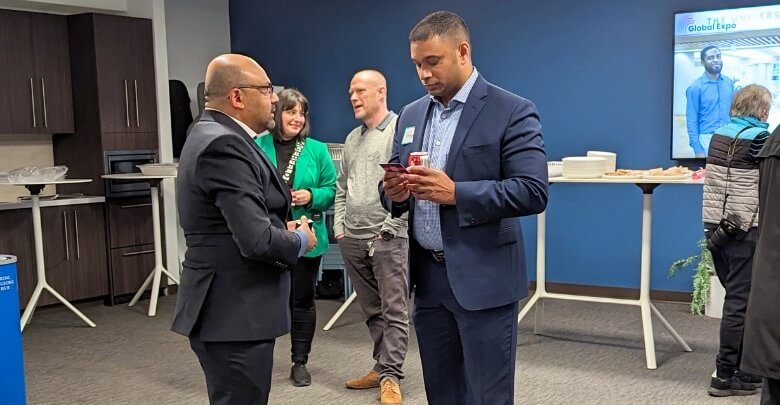Organizing a conference can be challenging, but securing funding for it can be even more daunting. Funding a conference is critical to success, as it helps cover expenses like venue booking, speaker fees, travel and accommodation costs, and marketing and promotion.
In today’s competitive business world, securing funding for a conference can be an arduous task. However, with the right strategy, it can be achieved.
To get funding for a conference, you can create a compelling proposal highlighting the event’s benefits, target potential sponsors, explore crowdfunding platforms, and consider applying for grants or seeking partnerships.
For your convenience, through the article, we’ll let you know some valuable insights into how to get funding for a conference. Also, some key steps conference organizers can take to make their conferences successful.
Key Takeaways
- Conduct thorough research on the target audience to tailor the proposal to meet their needs and interests and increase the chances of securing funding.
- Explore government grants and eligibility criteria and develop targeted sponsorship packages to identify potential sponsors whose values align with the conference’s mission and audience.
- Consider crowdfunding campaigns as a viable option for raising additional financial support, with realistic funding goals and compelling visuals and videos to effectively communicate the conference’s value proposition.
- Leverage social media outreach to promote the crowdfunding campaign, offer incentives and rewards, and engage in networking strategies to increase chances of success.
Identify Your Target Audience
Identifying the target audience is a crucial step in securing funding for a conference, as it allows for a clear understanding of who the conference will serve and how it aligns with the goals and values of potential sponsors.
Defining demographics, researching interests, analyzing attendance, and evaluating engagement are all critical factors to consider when identifying the target audience.
Demographics may include age, gender, education level, and occupation, while interests may range from a specific industry or field to more general topics. Attendance and engagement are also important to consider, as they can help determine the potential audience size and level of interest.
Engaging the target audience can help conference organizers tailor their proposals to meet the needs and interests of potential sponsors. By highlighting the alignment between the conference and the target audience, organizers can demonstrate the value of sponsoring the event.
Create a Detailed Proposal
To effectively secure financial support for a conference, prepare a comprehensive proposal that outlines all the relevant details and justifications for the event. The proposal should include a budget breakdown detailing all expenses associated with conference speaker fees, venue rental, and catering. It should also outline the revenue streams, such as ticket sales or sponsorships, that would help offset these costs.
In addition to the budget breakdown, the proposal should have a clear and organized structure, including an executive summary, an introduction, a detailed program, and a conclusion.
The executive summary should be a concise overview of the event, while the introduction should provide a background and rationale for the conference. The detailed program should include information on the topics to be covered, the speakers and their credentials, and any workshops or activities offered.
Finally, the conclusion should summarize the proposal and emphasize the benefits of the conference. With a well-structured proposal and budget breakdown, potential sponsors and funders will be more likely to support the event.
Note: Government grants can be a valuable source of funding for conferences. However, the application process for these grants can be lengthy and competitive. Thus, have a solid proposal and budget breakdown in place before applying for government grants to increase the chances of success.
Explore Government Grants
One potential avenue for securing financial support for a conference involves exploring available government grants, which can provide a significant funding source for such events. However, before applying for a government grant, research the eligibility criteria and understand the application process.
Some grants may have specific requirements, such as the focus of the conference, the target audience, or the event’s location. Carefully review these criteria and ensure the conference aligns with the grant’s goals.
There are various types of government grants available for conferences, including grants from federal, state, and local governments. Some examples of government grants include those focused on scientific research, education, or cultural events.
Additionally, grants may be available for specific industries or groups, such as minority-owned businesses or non-profit organizations. By exploring government grants and understanding the eligibility criteria and application process, organizers can secure significant financial support for their event.
Seek Corporate Sponsorships
A well-planned conference can gain significant advantages through corporate sponsorships when approached with a clear and strategic mindset. These sponsorships provide valuable benefits, including broader brand exposure, access to new potential customers, and meaningful business networking opportunities. By partnering with the right sponsors, conferences can enhance their reputation while offering companies a chance to showcase their services effectively.
To secure sponsorships, organizers should target companies that align with their conference’s vision, audience, and industry focus. Developing well-structured sponsorship packages with clear benefits—such as media promotion, brand collaborations, and on-site marketing opportunities—can attract suitable sponsors. For example, major events like conferences in Canada, along with those in the United States and the United Kingdom, often secure sponsorships by highlighting how businesses can connect with valuable industry professionals.
Building strong networks is also crucial for attracting sponsors who are willing to invest in event partnerships. Attending trade shows, business expos, and similar events allows organizers to meet potential sponsors and create meaningful relationships. Additionally, contacting companies that support similar conferences can lead to cross-promotional opportunities, benefiting both the sponsors and the event itself. By strategically using sponsorship packages and networking effectively, organizers can improve their chances of securing financial backing for a successful event.
Consider Crowdfunding Campaigns
Crowdfunding campaigns can be a viable option for raising additional financial support for a conference, as they allow organizers to tap into a large pool of potential donors passionate about the conference’s mission and vision.
Here are some campaign strategy tips to increase the chances of a successful crowdfunding campaign:
- Set Realistic Funding Goals: Set an achievable and realistic funding goal. An overly ambitious goal may deter potential donors from contributing.
- Create Compelling Visuals and Videos: Visuals and videos are powerful tools to communicate the conference’s value proposition. They should be designed to grab the attention of potential donors and convey the conference’s message clearly and concisely.
- Engage in Social Media Outreach: Social media platforms like Facebook, Twitter, and LinkedIn are great avenues for promoting crowdfunding campaigns. Utilize these platforms to reach potential donors and encourage them to share the campaign with their networks.
- Offer Incentives and Rewards: Providing incentives and rewards to donors can motivate them to contribute more. These can include exclusive access to conference materials, promotional merchandise, and recognition in conference materials.
Final Words
The success of a conference funding strategy depends on the ability to articulate a clear vision, build relationships with potential sponsors, and demonstrate the value of the event to the broader community.
With careful planning and a strategic approach, conference organizers can secure the resources needed to create an engaging and impactful event that inspires and educates attendees.
Whether seeking funding for an academic conference, industry event, or community gathering, the key is to be persistent, creative and focused on delivering an exceptional experience for all involved.








